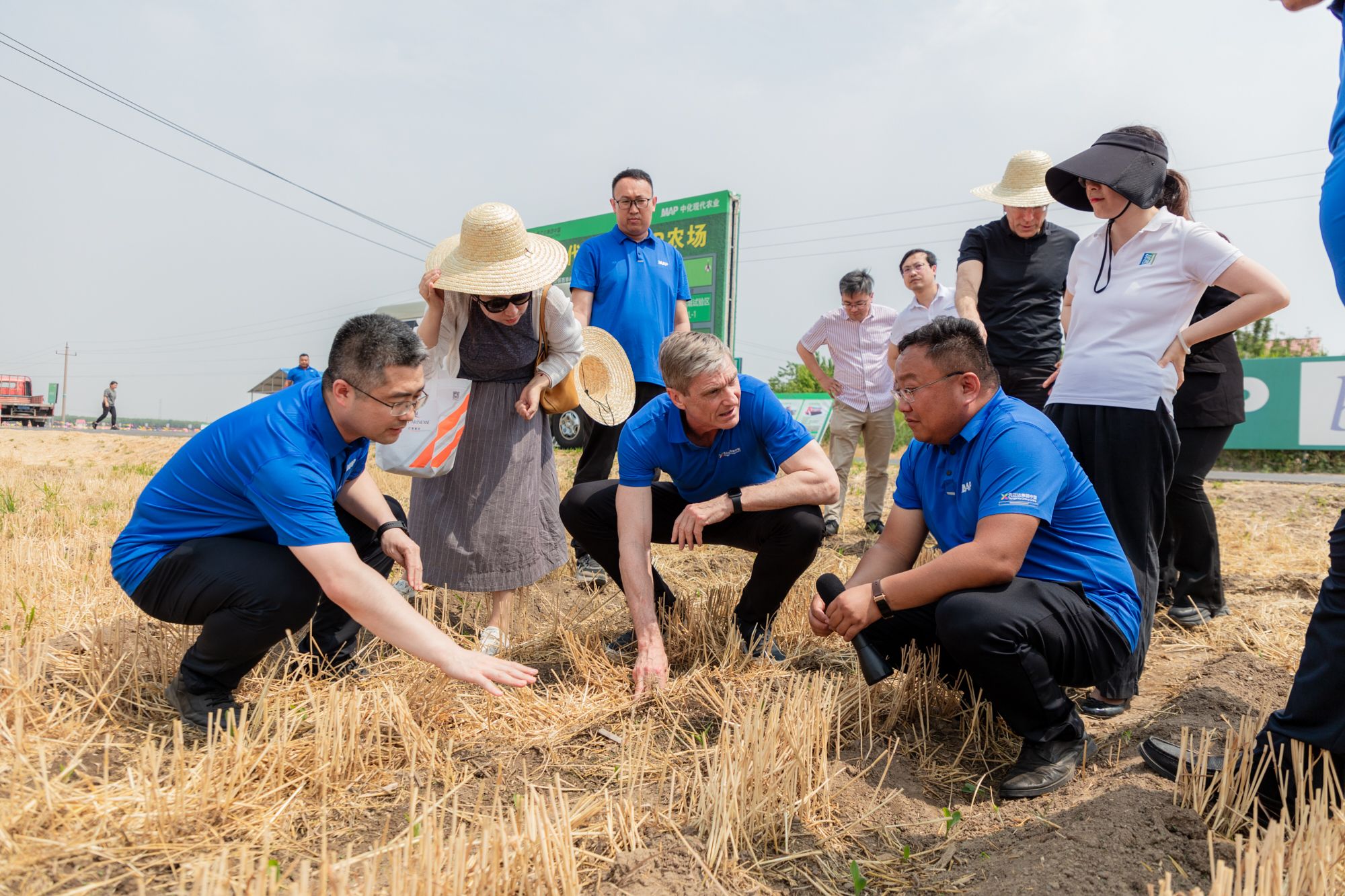Record farm harvest highlights pivotal role of MAP centers in China

When Syngenta Group CEO Erik Fyrwald and CFO Chen Lichtenstein visited the Modern Agriculture Platform (MAP) farm in Huantai, China, they witnessed how technology is transforming agriculture to support the nation’s ambitions for self-sufficiency in food production and conservation of its fertile soil.
In June, farmers at the Huantai farm harvested 13 hectares of “low carbon” wheat, a record achievement powered by innovative green planting technology. The farm was set up in 2022 by Syngenta Group China in collaboration with Nestlé Zone Greater China.

Erik Fyrwald meeting with a local farmer
Erik Fyrwald meeting with a local farmer
The MAP program assists farmers in sustainably boosting yield and crop quality, while limiting crop protection usage and curbing greenhouse gas emissions. Farmers also receive assistance in selling their produce to commercial buyers at premium prices. The wheat harvested at the Huantai farm, for instance, is supplied to Nestlé Zone Greater China.
“This is a world class farmer solution center, and the harvest represents yet another milestone in our goal to make Chinese agriculture more sustainable. We are working with Nestlé to transform the food system and reduce emissions and collaborating closely with local farmers to ensure they have access to the technologies that work best for them,” said Fyrwald, after a first-hand experience of regenerative agriculture trials with the MAP team and local farmers at Huantai.
Syngenta China’s agronomists work closely with local farmers on the farm to test regenerative agriculture practices like no-till farming and cover crops — planting corn after the wheat harvest — that help the soil retain more organic matter and make it resistant to erosion. They also assess the soil’s health through 2x2 meter wells dug into the earth and measure greenhouse gas emissions. With the active participation of farmers, new practices to improve soil health are implemented.

Huantai MAP beSide farm assists local farmers in sustainably boosting yield and crop quality
Huantai MAP beSide farm assists local farmers in sustainably boosting yield and crop quality
"Our Mappers have helped the farmers to improve their yields and quality for both wheat and corn. They’ve played a crucial role in the farmers’ success. In our chats, the farmers expressed great appreciation for regenerative practices,” said Lichtenstein.
China’s massive agricultural sector is increasingly dealing with extreme weather events brought about by climate change. In recent years, the nation has grappled with record temperatures, rainfall and droughts. China has also lost 5% of its arable land due to excessive use of fertilizers and pesticides. In light of these challenges, China, the world’s most populous nation, has underscored the need for a robust and resilient food security system.

Low-carbon wheat harvested at Huantai farm
Low-carbon wheat harvested at Huantai farm
In addition to making agriculture more profitable and sustainable for farmers, MAP centers can potentially help reduce China’s food imports and contribute towards the nation’s food self-sufficiency goal. “We look forward to training more grassroots Mappers and partnering with farmers across China to help them transform agriculture and combat the impact of climate change,” Fyrwald said.

Erik Fyrwald and Chen Lichtenstein with the Syngenta China team
Erik Fyrwald and Chen Lichtenstein with the Syngenta China team

